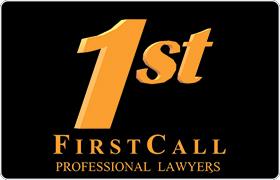Lake Forest Felony Lawyer, California
Sponsored Law Firm
-
 x
x

Click For More Info:
-
First Call Legal Services Corporation
530 Hacienda Dr Unit 101B Vista, CA 92081» view mapCriminal Defense Effective. Versatile. Decisive.
Our vision is to build strong, trust-based client relationships from our first handshake. Every challenge is an opportunity. You need the RIGHT PEOPLE for the job you want done.
760-690-3999
Peter Francis Iocona
✓ VERIFIEDRated by Super Lawyers, Peter F. Iocona - Attorney at Law, and his partners, Alan Castillo and Marlo Cordero, formed "The SoCal Law Network" and selec... (more)
John Nicholas Aquilina
✓ VERIFIEDIf you have been accused of a crime, you deserve personal representation and individual attention from a certified specialist in criminal law. John Aq... (more)
Early Marlow Hawkins
✓ VERIFIEDEarly Hawkins proudly serving Santa Ana, CA and neighboring communities in the areas of criminal, DUI-DWI, white collar crime, felony, and misdemeanor... (more)
Mark Raymond McDonald
FREE CONSULTATION
CONTACTFREE CONSULTATION
CONTACTFREE CONSULTATION
CONTACTFREE CONSULTATION
CONTACT First Call Legal Services Vista, CA
First Call Legal Services Vista, CA Practice AreasExpertise
Practice AreasExpertise



